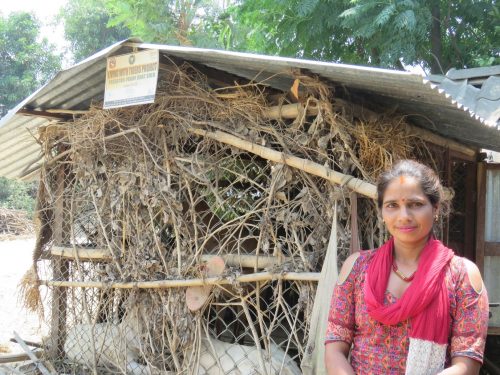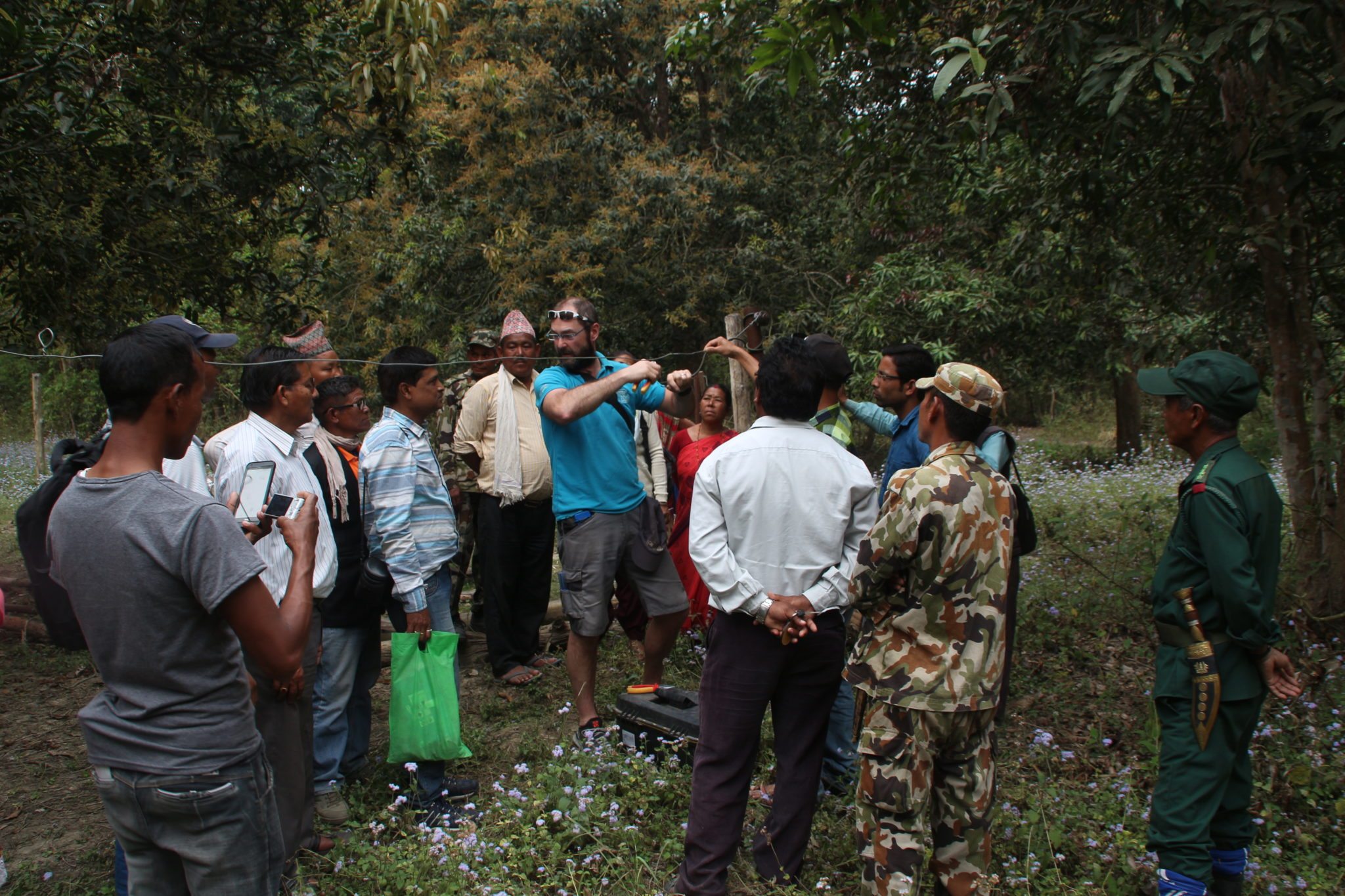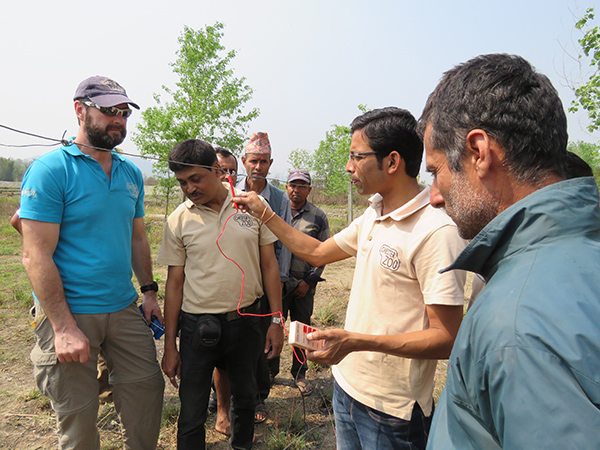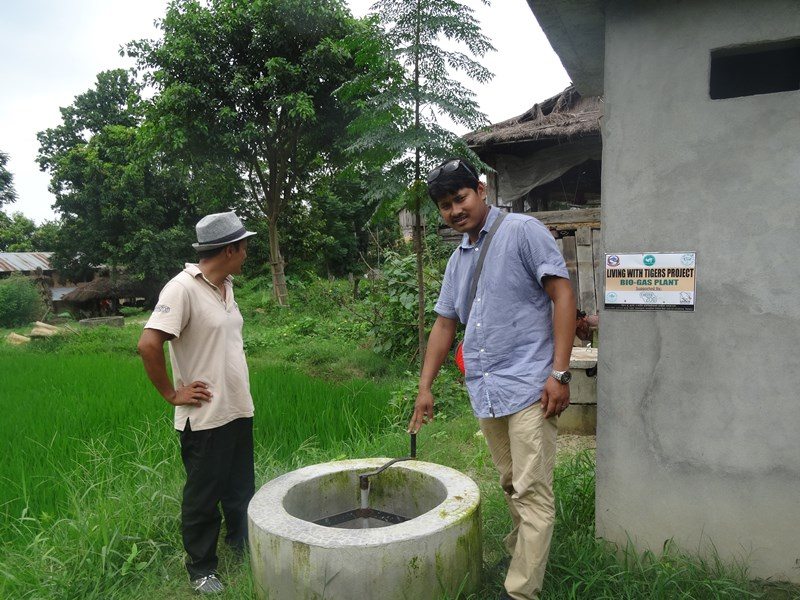Tag: Supporting sustainable living
The climate crisis our planet is facing is of great concern for many young people. The education sector has an opportunity to play a vital role in the legacy of COP26.
As the World Biodiversity Summit sparks discussion on the latest ideas and plans to tackle biodiversity loss, Chester Zoo Science Director, Simon Dowell, writes about the path forward for us in tackling one particular area of biodiversity decline…
A NEW BBC wildlife series, narrated by Sir David Attenborough and Prince William features our work promoting sustainable palm oil.
We’re celebrating International Tiger Day by sharing some of the stories from our Living with Tigers project in Nepal which is working to support human-wildlife coexistence.
As part of our Living with Tigers project, local communities had the opportunity to feedback on what they believed would make a positive impact on their day-to-day lives. The four communities we work with who live in areas bordering either Bardia or Chitwan National Parks in Nepal, expressed a strong need for horticulture workshops that would help them become less dependent on the forest for their livelihoods.
A series of workshops on installing electric fences was led in partnership by Chester Zoo and Ecosystems India in our Living with Tigers project sites in Nepal in an effort to mitigate human-wildlife conflict within local communities in Chitwan and Bardia as wildlife are proving a serious challenge in growing crops in the region.
The workshops provided the opportunity to transfer human-wildlife conflict damage control method technical skills gained in India as part of our Assam Haathi Project to Nepal. The project, funded by two Darwin Initiative grants between 2007 and 2012, had shown that electric fences were a highly effective deterrent measure to mitigate human-wildlife conflict and curb crop loss, property damage and human casualties in over 100 communities across Assam.
Chester Zoo’s electrician, Andrew Adderton, and Anjan Baruah and Ripunjoy Nathwas from Ecosystems India were part of the team that delivered two-day workshops in four Nepali villages: Madi, Kalabanjar, Patabhar, and Ramvapur, with which our Living with Tigers project also works in addition to giving presentations to the local communities, he also provided practical sessions explaining how to install and maintain electric fences.

The workshops were all well attended with around twenty participants taking part in each community. The participants were from a range of different backgrounds from other NGOs, to government officials to park authorities and electricians.
Transferring human-wildlife conflict damage control methods from one site to another is always difficult because each case is unique but providing the technical skills for local communities to adapt as needed can be very effective.
Having local field staff from our Assam Haathi Project travel to Nepal to share their own experiences and expertise with the local Living with Tigers Green Governance Nepal field staff was an incredible opportunity to share lesson learning and capacity building between Darwin funded projects and it also presented a great networking opportunity for future collaboration.

Research carried out by our conservation colleague Prof Serge Wich and other incredible scientists, revealed that 100,000 orangutans have been killed in Borneo since 1999 – with hunting and deforestation the main reasons for this devastating revelation.
Studying forestry at Tribhuwan University in Nepal, Tilak Chaudhary then graduated with a Master’s in Forest Science and Forest Ecology at the University of Göttingen, Germany. He worked with a non-governmental organisation for two years before starting his master degree and then worked on a USAID funded project for ten months after graduating. His main interests lie in the fields of conservation, forest and biodiversity management, and local communities’ involvement and livelihoods.

Meet Tilak…
“In the past, national parks and wildlife conservation areas were established to keep local communities away. Nowadays, the scenario has changed and conservationists have started realising that conservation is not possible if local people are not included. For a protected area to be successful, it is crucial to work with local communities.
“By working with local communities, I came to realise that conservation is not only about the protection of a species, it’s much broader than that.
“Working as the LWT Project Manager allows me to be directly involved in conservation! I am mostly in charge of planning field interventions to mitigate human-tiger interactions, coordinating with conservation partners, doing field visits to ensure that the project interventions are effective and developed in the way they were envisioned, and meeting with local partners. On a typical day, I usually communicate with field staff for updates, but also explore ideas for potential interventions and prepare for upcoming events such as camera trapping activities.
The LWT project is developing interventions to mitigate negative interactions between humans and tigers, promoting alternative livelihoods and doing social marketing to change behaviours of local communities to minimise human-wildlife conflicts.
“These are important aspects that must be considered as Nepal has committed to double its tiger population by 2022. While promoting tiger conservation, the project is also promoting tourism in national parks using tigers as a flagship animal in both national parks. The project has also broadened the scope and recognition of Green Governance Nepal (GGN).”